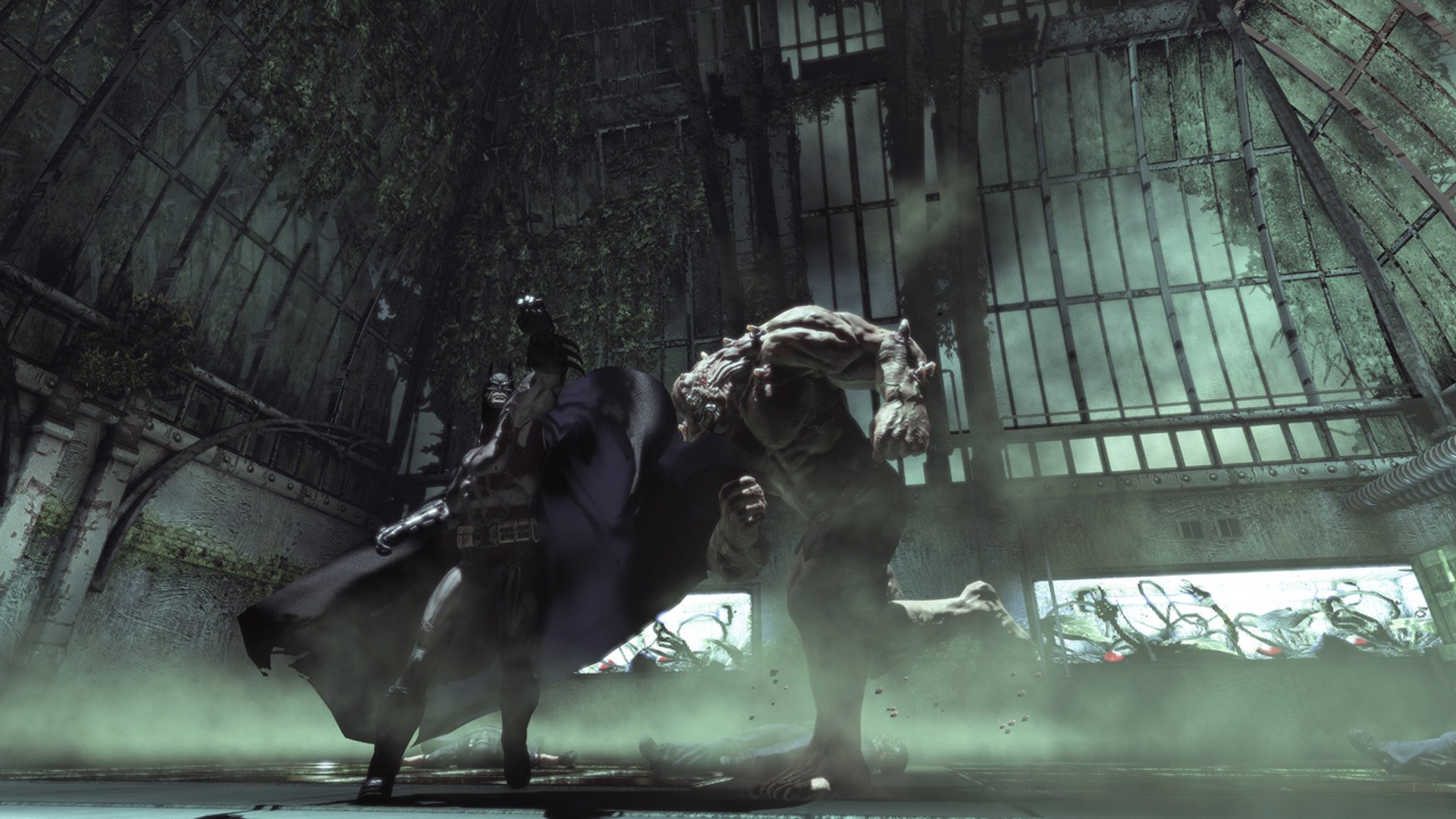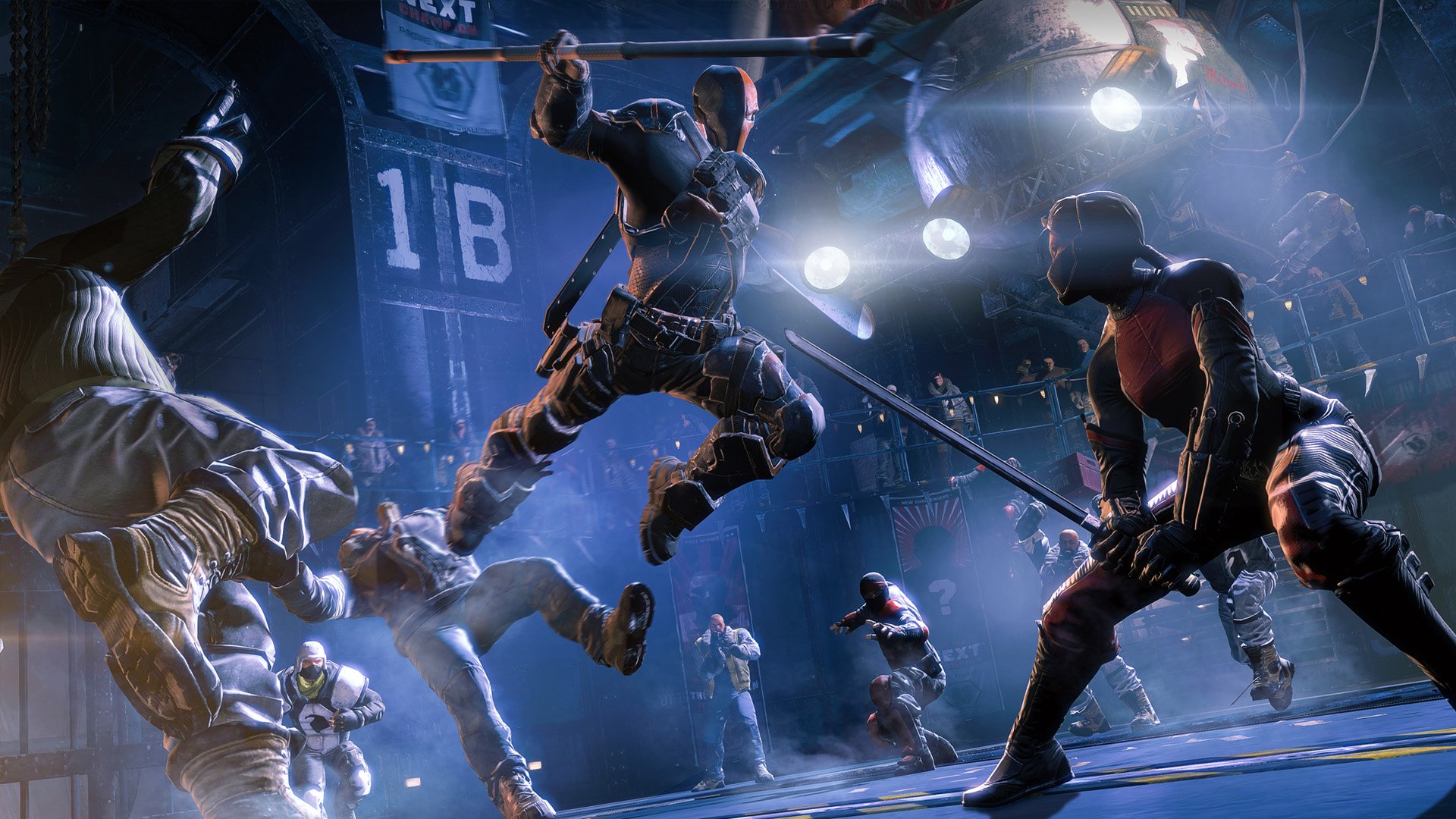Rocksteady readies for life after Batman
“It’s quite a … ‘somber’ is the wrong word, but it’s an interesting atmosphere at the studio,” says Guy Perkins, Rocksteady’s marketing game manager. The end of development on Batman: Arkham Knight, the game Rocksteady calls the conclusion to its trilogy, may also be the end of a nine-year relationship with the grumpiest man to don a cape. “It’s mixed emotions,” Perkins says. “Exciting, because the game’s coming out and we’re finishing those story threads, but also sad that it might be the last time that we work with Batman and go on to do something totally different.”
Rocksteady’s big Batman flip is arguably the biggest fixer-upper of a licensed property in the last decade. In 2009, with only a shooter, Urban Chaos: Riot Response, to its name, the UK-based developer turned in Batman: Arkham Asylum, rescuing a comic book icon from mediocre video game purgatory for a role with structure, elegance and biff-pow punch.

It’s not clear who has grown more in the time since then: Batman as a worthwhile video game vehicle, whose career has been captured in meticulous detail and greater and greater versions of Gotham City; or Rocksteady, which has rolled from one Arkham game into the next with a team of 40, then 60 and now 160.
“We’ve scaled up as the projects have gotten bigger and more ambitious,” says Perkins. “Just, for example, Gotham is completely handcrafted. There’s no procedurally generated content or buildings. Everything is done by hand.”
Rocksteady’s unique construction of Gotham takes a long time, though, and possibly twice as long as is comfortable in the world of bankable, licensed games. The studio’s owner, WB Games, passed Batman over to WB Games Montreal in the meantime for 2013’s Batman: Arkham Origins. Though not as well received as Rocksteady’s game, Origins still stands as part of the series, albeit in the confusing position of prequel and fourth game in a trilogy (but released third chronologically).

The marketing for Arkham Knight basically throws Arkham Origins under the bat-bus, proclaiming Rocksteady’s third game to be the end of the trilogy. THE trilogy. Perkins doesn’t see it as rivalry, but as a symptom of back-to-back development. “It’s our third game, it’s the third part of our story, so it is our trilogy,” he says. “You know, the Montreal guys took Batman in their direction, but we went from Asylum straight into City, and then straight into Batman: Arkham Knight. That’s been our development, our universe, and we’ve been focused on those games. It’s the third one from us, it’s the third part of our story, so it’s our trilogy. There’s a fourth Batman game going in the direction that it’s going.”
For there to be a perceived difference between Batman games from alternate studios is ultimately good news. As Rocksteady emerges from the Batcave this year, it’ll aim to launch forward not on the back of a popular superhero, but on the strengths of its team and ideas. And though it may do Batman Again, the studio is also thinking of what a Rocksteady sequel - as opposed to a Batman sequel - may look like. “It’s good in a way because we don’t know what’s next,” says Perkins. “We’ve been so focused on finishing this game and making it as good as it possibly can be. I think ultimately we are obsessed with attention to detail and gameplay experiences that are interesting and rewarding. We’ll take that and roll it into whatever we work on next.”
Weekly digests, tales from the communities you love, and more
Ludwig Kietzmann is a veteran video game journalist and former U.S. Editor-in-Chief for GamesRadar+. Before he held that position, Ludwig worked for sites like Engadget and Joystiq, helping to craft news and feature coverage. Ludwig left journalism behind in 2016 and is now an editorial director at Assembly Media, helping to oversee editorial strategy and media relations for Xbox.



